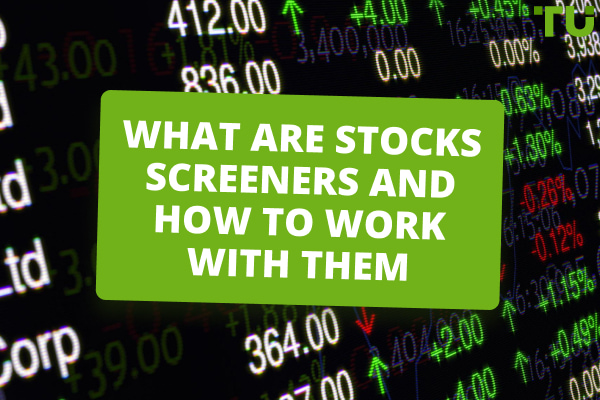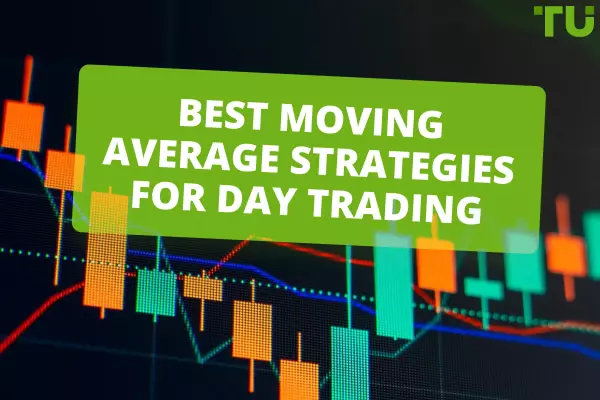How can I develop a disciplined approach to forex trading and avoid emotional decisions?
Control of emotions and strict adherence to the plan are the rules that will help you achieve success. Use stops and take profit, stop if you feel the situation is getting out of control, do not make hasty, rash decisions.
Forex trading is a complex and risky activity that requires discipline and self-control. Emotional decisions often lead to losses, so it is important to learn how to manage your emotions and make decisions based on market analysis, not on emotions.
Why do traders break discipline
Traders break discipline for a variety of reasons. Some of the most common reasons include:
-
Emotions: Emotional states, such as fear, greed, anger, and joy, can lead traders to make impulsive decisions that do not align with their trading strategy.
-
Inexperience: Inexperienced traders may not have enough experience or knowledge to make sound decisions. They may be more prone to impulsivity and mistakes.
-
Unrealistic expectations: Traders who have unrealistic expectations of trading may be more prone to disappointment and emotional swings. This can lead to breakdowns in discipline.
-
Lack of self-control: Traders who do not have strong self-control may be more prone to impulsivity and breakdowns in discipline.
Breaking discipline in trading can lead to the following consequences:
-
Losses: Impulsive decisions made under the influence of emotions often lead to losses.
-
Reduced efficiency: A trader who does not follow their strategy will be less efficient in trading.
-
Loss of confidence: A trader who constantly breaks discipline may lose confidence in themselves and their abilities.
In general, breaking discipline in trading can lead to negative consequences that can negatively impact trading results.
Types of emotions that exist in trading
There are many emotions that can affect a trader's decision-making. Some of the most common emotions include:
-
Fear: Fear is a natural emotion that can occur in traders when they are faced with the risk of losing money. Fear can lead to traders avoiding trading, as well as to them closing profitable positions too early.
-
Greed: Greed is another natural emotion that can occur in traders when they see an opportunity to make a profit. Greed can lead to traders holding losing positions too long, as well as to them entering trades with too large a position size.
-
Anger: Anger can occur in traders when they lose money or when they see that other traders are succeeding. Anger can lead to traders making impulsive decisions that can lead to even more losses.
-
Joy: Joy can occur in traders when they make a profit or when they see that their strategy is working. Joy can lead to traders becoming overconfident and making rash decisions.
These emotions can be very destructive to traders if they cannot control them. Traders who can manage their emotions will be more successful in the long run.
How to develop discipline - tips for beginning traders
Here are some tips on how to develop a disciplined approach to forex trading and avoid emotional decisions:
-
Create a trading plan. Before you start trading, it is important to create a trading plan that will include your trading goals, strategy, and risk management. A plan will help you stay focused and disciplined, even when the market is moving against you.
-
Set stop-losses and take-profits. Stop-losses will help you limit your losses, and take-profits will help you lock in your profits. Setting stop-losses and take-profits is an important aspect of risk management that will help you avoid emotional decisions.
-
Trade only with capital that you can afford to lose. It is important not to risk too much money that you cannot afford to lose. If you lose too much money, it can lead to emotional decisions that can lead to even more losses.
-
Learn from your mistakes. Every trader makes mistakes. It is important to learn from your mistakes and make the necessary changes to your trading strategy.
-
Do not trade when you are emotionally charged. If you are feeling anger, fear, or greed, it is best to refrain from trading. Emotional decisions often lead to losses.
By following these tips, you will be able to develop a disciplined approach to forex trading and avoid emotional decisions.
Here are some additional tips that may help you develop a disciplined approach to forex trading:
-
Be aware of your emotional state. It is important to be aware of your emotions and understand how they can influence your trading. If you are feeling emotionally charged, it is best to refrain from trading.
-
Find a trading partner or mentor. A trading partner or mentor can help you stay disciplined and stick to your trading strategy.
-
Join a trading community. A trading community can be a great source of support and motivation.
Developing a disciplined approach to forex trading takes time and effort. However, it is one of the most important aspects of successful forex trading.
Creating a trading plan
Your trading plan should include the following:
-
Your trading goals. What are you hoping to achieve with your forex trading? Are you looking to make a living from trading, or are you simply looking to generate some extra income?
-
Your trading strategy. How will you identify trading opportunities? What indicators or technical analysis will you use?
-
Your risk management strategy. How much money are you willing to risk on each trade? What stop-loss and take-profit levels will you use?
Your trading plan should be specific and actionable. It should be something that you can refer to on a regular basis.
Setting stop-losses and take-profits
Stop-losses are essential for risk management. They help you limit your losses if a trade goes against you. Take-profits help you lock in your profits.
It is important to set stop-losses and take-profits before you enter a trade. This will help you avoid making emotional decisions in the heat of the moment.
When setting stop-losses, it is important to consider the following factors:
-
Your risk tolerance: How much are you willing to lose on a single trade?
-
Your trading strategy: What is your target profit?
-
The volatility of the market: How volatile is the market you are trading?
-
A general rule of thumb is to set stop-losses at a level that will allow you to lose no more than 2% of your trading capital on a single trade. For example, if you have $10,000 in trading capital, you should set your stop-losses at a level that will allow you to lose no more than $200 on a single trade.
When setting take-profits, it is important to consider the following factors:
-
Your trading strategy: What is your target profit?
-
The volatility of the market: How volatile is the market you are trading?
-
Your risk tolerance: How much profit are you willing to forgo in order to limit your risk?
A general rule of thumb is to set take-profits at a level that will allow you to achieve your target profit. For example, if your target profit is 5%, you should set your take-profit at a level that will allow you to achieve that profit.
Trading only with capital that you can afford to lose
Forex trading is a risky activity. You should only trade with capital that you can afford to lose. If you lose too much money, it can lead to emotional decisions that can make the situation worse.
Learning from your mistakes
Every trader makes mistakes. It is important to learn from your mistakes and make the necessary changes to your trading strategy.
Keep a trading journal to track your trades. This will help you identify your strengths and weaknesses.
Not trading when you are emotionally charged
Emotions can cloud your judgment and lead to impulsive decisions. If you are feeling angry, fearful, or greedy, it is best to refrain from trading until you have calmed down.
Be aware of your emotional state
It is important to be aware of your emotions and understand how they can influence your trading. Pay attention to your body language and your thoughts. If you notice that you are feeling emotionally charged, take a break from trading.
Find a trading partner or mentor
A trading partner or mentor can provide support and guidance. They can help you stay disciplined and stick to your trading strategy.
There are a few ways to find a trading partner. You can:
-
Join a trading forum or community. There are many online forums and communities where you can connect with other traders.
-
Attend a trading seminar or workshop. This is a great way to meet other traders and learn from their experiences.
-
Reach out to a trader you admire. If you know of a trader who you admire, you can reach out to them and see if they would be interested in being your trading partner.
-
Ask your friends, family, or colleagues for recommendations. If you know someone who is a successful trader, they may be able to recommend a mentor for you.
You want to find someone who is willing to invest time and effort into helping you improve your trading skills.
Best Forex brokers 2024


Conclusion
To develop a disciplined approach to forex trading and avoid emotional decisions, it is important to have a clear trading plan, set stop-losses and take-profits, trade only with capital you can afford to lose, and take breaks when you are feeling emotional.
FAQs
How do I control my emotions when trading forex?
Here are some tips on how to control your emotions when trading forex:
-
Develop discipline. Have a clear plan of action and stick to it.
-
Set stop-losses and take-profits. This will help limit losses and lock in profits.
-
Trade only with capital you can afford to lose.
-
Learn from your mistakes. Analyze your trades and make changes to your strategy as needed.
-
Don't trade when you are feeling strong emotions. Take a break if you are feeling overwhelmed or stressed.
Controlling your emotions is a skill that takes time and practice. Don't be discouraged if you don't get it right away. Just keep learning and improving your skills, and over time you will be able to control your emotions and make more sound trading decisions.
How do you stay disciplined in forex trading?
Develop discipline by following your plan, setting stop-losses and take-profits, trading only with capital you can afford to lose, and avoiding trading when you are feeling strong emotions. Emotions can be a major obstacle to successful forex trading. When you are feeling emotionally, you are more likely to make impulsive decisions that can lead to losses.
What are the 4 emotions in trading?
The four emotions that can hinder successful trading are fear, greed, hope, and euphoria. To control these emotions, it is important to have a clear trading plan, set stop-losses and take-profits, trade only with capital you can afford to lose, learn from your mistakes, and avoid trading when you are feeling strong emotions.
How do I become a confident trader?
To become a confident trader, it is important to learn, practice, and not be afraid to make mistakes.
Glossary for novice traders
-
1
Broker
A broker is a legal entity or individual that performs as an intermediary when making trades in the financial markets. Private investors cannot trade without a broker, since only brokers can execute trades on the exchanges.
-
2
Trading
Trading involves the act of buying and selling financial assets like stocks, currencies, or commodities with the intention of profiting from market price fluctuations. Traders employ various strategies, analysis techniques, and risk management practices to make informed decisions and optimize their chances of success in the financial markets.
-
3
Forex Trading
Forex trading, short for foreign exchange trading, is the practice of buying and selling currencies in the global foreign exchange market with the aim of profiting from fluctuations in exchange rates. Traders speculate on whether one currency will rise or fall in value relative to another currency and make trading decisions accordingly.
-
4
Take-Profit
Take-Profit order is a type of trading order that instructs a broker to close a position once the market reaches a specified profit level.
-
5
Risk Management
Risk management is a risk management model that involves controlling potential losses while maximizing profits. The main risk management tools are stop loss, take profit, calculation of position volume taking into account leverage and pip value.
Team that worked on the article
Alex Smith is a professional day trader for a proprietary trading firm within the foreign exchange (forex) and crypto markets. His area of expertise is day trading and swing trading within the 15min-4hr time frames for both the London and NY open.
Dr. BJ Johnson is a PhD in English Language and an editor with over 15 years of experience. He earned his degree in English Language in the U.S and the UK. In 2020, Dr. Johnson joined the Traders Union team. Since then, he has created over 100 exclusive articles and edited over 300 articles of other authors.
Mirjan Hipolito is a journalist and news editor at Traders Union. She is an expert crypto writer with five years of experience in the financial markets. Her specialties are daily market news, price predictions, and Initial Coin Offerings (ICO).









